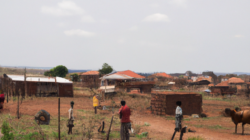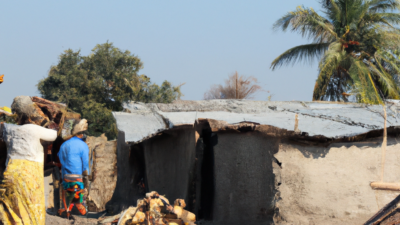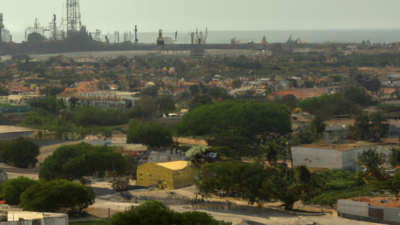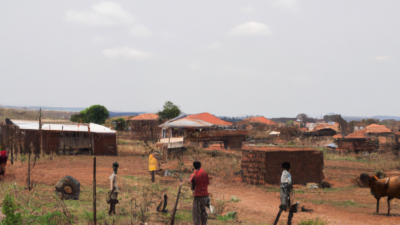<!DOCTYPE html>
<html lang="en">
<head>
<meta charset="UTF-8">
<meta name="viewport" content="width=device-width, initial-scale=1.0">
<title>Facts About Angola's Economy</title>
<style>
body {
font-family: Arial, sans-serif;
line-height: 1.6;
margin: 20px;
}
h1, h2 {
color: #2E8B57;
}
p {
margin-bottom: 15px;
}
ul {
list-style-type: disc;
margin-left: 20px;
}
</style>
</head>
<body>
<header>
<h1>Facts About Angola's Economy</h1>
</header>
<article>
<section>
<h2>Introduction</h2>
<p>Angola, a country located on the west coast of Southern Africa, is known for its rich natural resources, diverse culture, and complex history. The economy of Angola has undergone significant changes over the past few decades, transitioning from a war-torn nation to one with promising economic potential. In this article, we will explore various facets of Angola's economy, providing a comprehensive overview of its current state and future prospects.</p>
</section>
<section>
<h2>Oil and Gas Sector</h2>
<p>The oil and gas sector plays a crucial role in Angola's economy, accounting for a significant portion of the country's GDP, revenues, and exports. Angola is one of Africa's largest oil producers, with vast offshore oil fields primarily operated by international companies. The oil industry's dominance has shaped the country's economic landscape, but it also presents challenges related to diversification and economic stability.</p>
</section>
<section>
<h2>Agriculture and Fisheries</h2>
<p>Agriculture has traditionally been one of the primary sources of employment in Angola. Key agricultural products include coffee, sugarcane, corn, sisal, and cotton. Despite the potential, the sector has struggled due to inadequate infrastructure and investment. However, there are ongoing efforts to revitalize agriculture to reduce dependence on oil. The fisheries sector also holds promise, given Angola's extensive coastline and rich marine resources.</p>
</section>
<section>
<h2>Mining Industry</h2>
<p>In addition to oil, Angola is rich in other natural resources, including diamonds, iron ore, and phosphates. Diamond mining, in particular, is a significant contributor to the economy, with Angola being one of the world's top diamond producers. The mining industry has the potential to attract foreign investment and generate substantial revenue, contributing to economic diversification.</p>
</section>
<section>
<h2>Challenges and Opportunities</h2>
<p>While Angola's economy has substantial potential, it also faces several challenges. These include:</p>
<ul>
<li>Economic Diversification: Reducing dependence on oil and developing other sectors.</li>
<li>Infrastructure Development: Improving transportation, energy, and communication networks.</li>
<li>Political Stability: Ensuring a stable political environment to attract investment.</li>
<li>Human Capital: Enhancing education and skills training to build a competent workforce.</li>
</ul>
<p>Opportunities for growth exist in sectors such as agriculture, tourism, and manufacturing. Continued reforms and investments in these areas could pave the way for sustainable economic development.</p>
</section>
<section>
<h2>Conclusion</h2>
<p>Angola's economy is characterized by its rich natural resources and potential for diversification. While the oil and gas sector remains dominant, there are significant opportunities in agriculture, mining, and other industries. Addressing the challenges of infrastructure, political stability, and human capital development will be crucial for achieving long-term economic growth. With strategic investments and reforms, Angola has the potential to transform its economy and improve the livelihoods of its citizens.</p>
</section>
</article>
</body>
</html>
Hello! How can I assist you today?
Hello! How can I assist you today?













